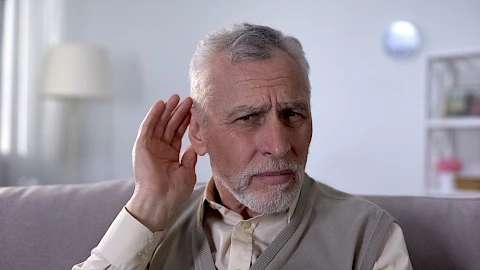
It's normal for our sensory abilities to decline as we age. Among the most affected senses are hearing and vision. When one sense diminishes, the other often compensates. However, compromised hearing and vision can lead to significant challenges in daily life. Recognizing their interconnectedness can help ensure seniors receive comprehensive care that addresses both areas simultaneously.
The Aging Process and Sensory Decline
Hearing and vision loss are common in older adults. Various factors can lead to these declines, making regular check-ups crucial. Hearing loss can be due to natural aging (presbycusis), long-term exposure to loud noises, ear infections or illnesses, and certain medications. Vision loss in seniors may be due to age-related macular degeneration (AMD), cataracts, glaucoma, and diabetic retinopathy.
Nearly one-third of people between ages 65 and 74 have hearing loss. Meanwhile, visual impairment is one of the leading reasons seniors aged 65 and older lose independence. These statistics underline the importance of regular sensory check-ups as we age.
The Interconnectedness of Hearing and Vision
Hearing and vision are vital to our overall perception and safety. A decline in one sense can significantly affect daily life. Loss of hearing impacts communication, leading to misunderstandings and social isolation. Seniors may find it challenging to follow conversations, especially in noisy environments. Vision loss can hinder mobility, making everyday tasks more challenging and potentially dangerous.
When hearing and vision loss occur together, the challenges multiply. Seniors might struggle with recognizing faces and expressions, following conversations (especially in groups), reading lips or body language, and safely navigating their surroundings. These compounded effects can challenge independent living, necessitating increased support and adaptation.
The Impact on Communication and Social Engagement
Hearing loss can make social interactions difficult at best. Seniors with hearing impairments often have to ask others to repeat themselves, leading to feelings of annoyance or embarrassment. They may also misinterpret conversations, which can result in frustration.
When vision loss is also present, the challenges intensify. Social interactions rely heavily on both hearing and sight. Recognizing faces, reading lips, and interpreting body language become problematic, making social engagement even more challenging.
The psychological and emotional toll of sensory decline is substantial. Many seniors feel isolated, lonely, or even depressed. The lack of social interaction and the difficulty in communicating can lead to a decline in mental health and overall well-being.
The Importance of Regular Check-Ups
Early detection and intervention are vital for managing sensory decline. Regular check-ups can help identify issues before they become severe, allowing for timely treatments and interventions. They also improve quality of life through better management of sensory loss. Seniors should have their hearing checked annually and visit an eye specialist at least once every one to two years.
Stay Engaged With Support From Senior Helpers
The interconnectedness of hearing and vision loss highlights the need to proactively address sensory impairments in maintaining senior well-being. With regular screenings and timely interventions, seniors can better manage these challenges as they navigate their golden years.
If you’re considering additional home support, especially while managing the challenges of vision and hearing loss, Senior Helpers Metro Portland North can help. Our professional in-home care services include personal hygiene assistance, meal preparation, transportation and appointments, and more. Contact us today if you’re in Portland, Beaverton, Gresham, Hillsboro, Troutdale, and surrounding areas for more information.